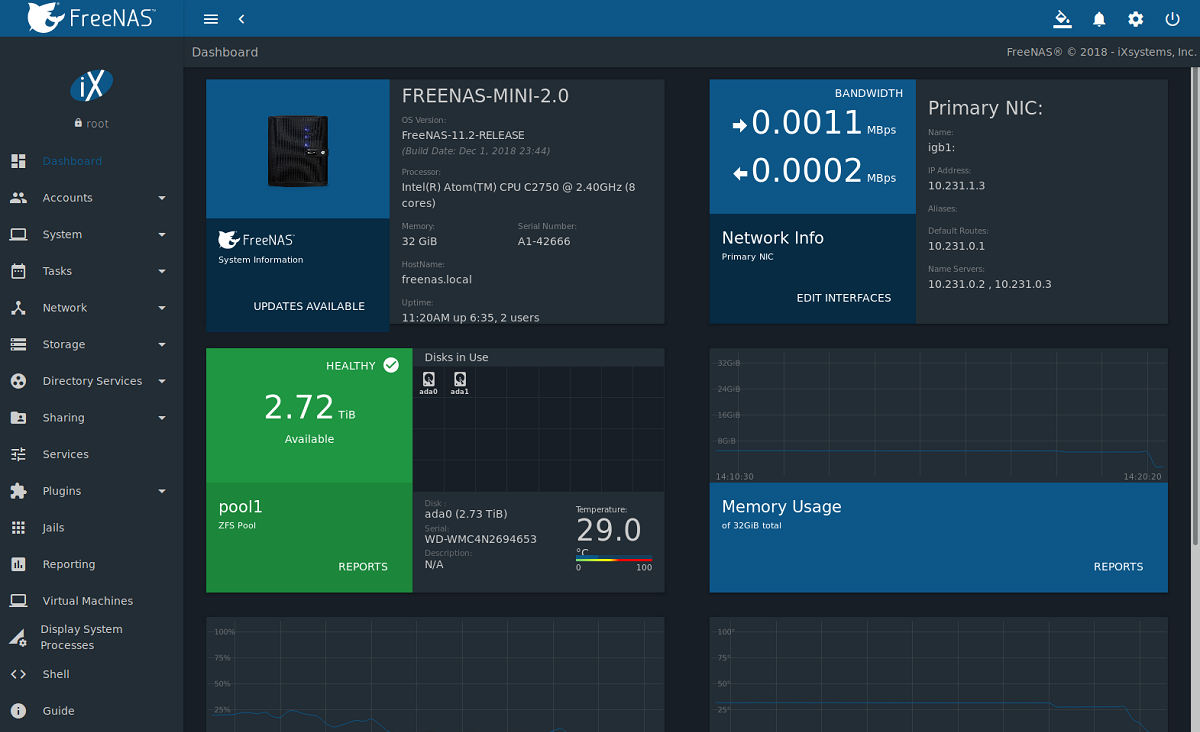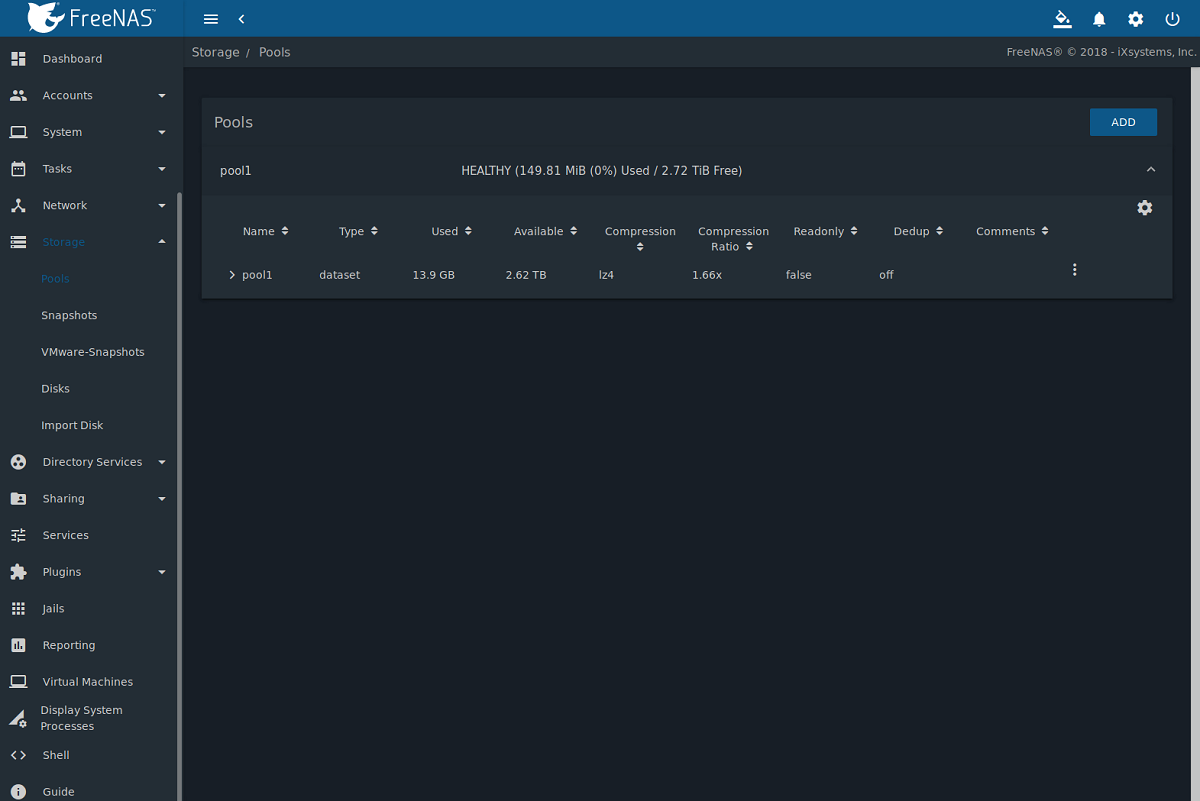
FreeNAS 11.3 has just been released, which is a free operating system, open source (BSD license) based on FreeBSD providing NAS network storage services, With which this system allows converting a personal computer into a storage medium accessible from the network, for example, for mass storage of information, music, backups, etc.
FreeNAS was created in order to simplify the administration and maintenance of file serversAlso because current servers lacked scalability, reliability, availability and performance. FreeNAS has ease of use going for it, provides heterogeneous data, and enables organizations to automate and simplify data maintenance.
FreeNAS features integrated ZFS support and the ability to manage through a web interface created using the Python Django framework. Besides that different protocols can be used to organize storage access, software RAID (0,1,5) can be used to increase storage reliability and LDAP / Active Directory support is implemented for customer authorization.
Among its main characteristics are:
- Easy installation.
- Easy remote administration, through web pages accessible from any networked computer with a browser.
- It is not necessary to have a monitor or keyboard connected for its operation.
- It can be installed on hard disk, USB Key, or CompactFlash card.
- RAID Hardware and Software

Main new features of FreeNAS 11.3
In this new version of FreeNAS 11.3 the data replication engine in ZFS was modified, With which replication performance increased 8 times. And also a wizard was added to configure large ZFS pools covering a large number of discs. The proposed interface allows you to automate the cloning of the VDEV design on all units.
The added support for automatic resumption of interrupted data transfer sessions, execution of parallel tasks and local replication. In addition, an ACL Manager was added with a web-based interface to configure and manage access control lists in SMB sections.
For new SMB partitions, SMB Shadow Copy module is enabled by default, which creates backups using the ZFS snapshot system. The created copies of the files can be viewed in the "Previous Versions" tab in the file manager.
The monitoring interface has been redesigned, which provides a grouping of alerts by type, not by alphabet, along with the ability to set thresholds to generate alerts and also implemented a new type of persistent critical alerts that remain active until manually closed. For the periodic release of drivers, the new alert framework is used.
Also, a new REST API is proposed that supports Websocket and uses common controllers with a web-based interface. The API can be used to manage FreeNAS from scripts and integrate with external platforms. Added API for saving and auditing configuration files.
Of the other changes that stand out:
- Added support for using quotas for SMB defined in Active Directory.
- Community plugin repository with plugins prepared by community representatives and not officially endorsed by iXsystems.
- Added iSCSI wizard, simplifying the creation of the new iSCSI target.
- The Dashboard interface has been rewritten, now offering a summary report on current system status, network activity, CPU load, and memory consumption.
- You can use the address translator to run plug-ins, without the need to assign each plug-in its own IP address.
- ZFS performance optimization for different types of loads.
- Simplified configuration wizards are proposed for SMB, network configurations, and replication.
- WireGuard VPN support implemented.
- Updated translations into Czech, French, Japanese, Russian and Simplified Chinese. Also, the process of adding additional translations has been greatly improved.
Finally if you want to download the system image, you can do it from the link below.